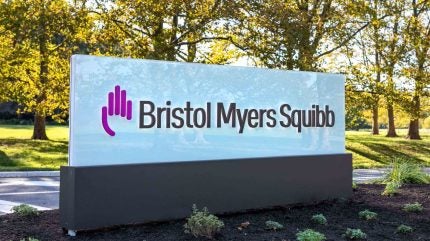
Bristol Myers Squibb (BMS) has announced findings from the Phase III CheckMate -9DW trial where Opdivo (nivolumab) plus Yervoy (ipilimumab) as a first-line treatment for unresectable hepatocellular carcinoma (HCC) improved overall survival (OS) rates.
The randomised, open-label study involved approximately 668 patients with unresectable HCC who had not received systemic therapy previously.

Discover B2B Marketing That Performs
Combine business intelligence and editorial excellence to reach engaged professionals across 36 leading media platforms.
Participants were randomised to receive a dual immunotherapy regimen comprising Opdivo plus Yervoy, or the standard oral treatments of lenvatinib or sorafenib.
The trial’s primary endpoint was overall survival, with key secondary endpoints including objective response rate and time to symptom deterioration.
Findings showed that with a median follow-up period of approximately 35.2 months, Opdivo plus Yervoy offered statistically significant and clinically meaningful improvement in OS.
Patients treated with the immunotherapy duo had a median overall survival of 23.7 months, in contrast to 20.6 months for those on lenvatinib or sorafenib.

US Tariffs are shifting - will you react or anticipate?
Don’t let policy changes catch you off guard. Stay proactive with real-time data and expert analysis.
By GlobalDataThe survival benefit was consistent across various patient subgroups.
In addition, the objective response rate for the combination therapy was 36%, compared to 13% with the control treatments.
Most notably, the complete response rate was 7% for Opdivo plus Yervoy versus 2% for lenvatinib or sorafenib, with a median duration of response of 30.4 months and 12.9 months, respectively.
The combination therapy also led to a 24% reduced risk of symptom deterioration compared to the control arm.
The safety profile of Bristol Myers Squibb Opdivo plus Yervoy aligned with previous data and was manageable through established protocols.
Bristol Myers Squibb gastrointestinal and genitourinary cancers global programme lead and vice-president Dana Walker said: “The combination of Opdivo plus Yervoy has been an established second-line treatment for patients with advanced HCC and, with these results, we can demonstrate that Opdivo plus Yervoy significantly increases survival and other key efficacy measures in the first-line setting for patients with advanced disease.
“We look forward to discussing these data with health authorities and potentially bringing the dual immunotherapy combination of Opdivo plus Yervoy to more patients.”
The latest development comes after the company reported data from three studies in which Breyanzi (lisocabtagene maraleucel; liso-cel) caused clinically meaningful outcomes in a wide range of B-cell malignancies.





